The Hidden Rules of English we all Somehow Know, Mark Forsyth and Rhyme & Reason
Learn something new today
I absolutely loved listening back to yesterday’s podcast episode with author and etymologist Mark Forsyth. True to form, Mark is both fascinating and at times hilarious.
So many fascinating nuggets, including:
The hidden rules of grammar that English speakers follow without realising.
Why Lord Byron—the Taylor Swift of his day—sold more books in an afternoon than Jane Austen sold in her lifetime.
Why you would be a swashbuckler rather than a buckle swasher.
Why the Aztecs will have you never looking at avocados the same way again.
Why you don’t know the second most successful songwriter in America (the 1st and 3rd are Paul McCartney and John Lennon).
How raunchy poems went “viral”—even in the 1610s.
Why writing in verse, even today, is where the really big sales are.
How Julia Donaldson made her books (Gruffalo and others) perfect even for tired parents reading to their kids at night.
How 3 London Bridges illustrate that we’re all natural rhythm keepers
What makes limericks funny and how it can prove to be unfortunate to come from Nantucket or Ealing.
I could go on and on (but I won’t, don’t worry).
We got stuck into one of my favourite sketches, ordering adjectives, and into his new book Rhyme & Reason: A Short History of British Poetry (For People Who Don’t Usually Read Poetry).
As someone who would firmly sit in the ‘don’t usually read poetry’ camp, I can confirm that Rhyme & Reason is, like the chat with Mark, both fascinating and, at times, hilarious.
I should explain that I was rather star-struck to have Mark Forsyth join us. I reached out to Mark when I recently covered chiasmus.
After thoroughly enjoying Mark’s TEDx talk How to Talk Yourself into the White House and having enjoyed pretty much everything I’ve read by him, I asked if he’d join us on the podcast. To my delight, he agreed. Mark hits a brilliant blend of interesting, erudite, quirky, and funny.
You might also find you enjoy from him:
Elements of eloquence—the turns of phrase that make English memorable
Etymologicon—the fascinating origins for hundreds of words including avocados and biscuits
A Christmas Cornucopia—why we put a dead tree in the corner of the living room
And because these are only a few of the things I’ve learned from Mark, here’s my little Mark Forsyth-themed gallery of sketches:
Ablaut reduplication - why a clock never goes tock-tick and you don’t wear a flop-flip
Anadiplosis — Yoda being one of the best examples
Pleonasm — this one’s a free gift
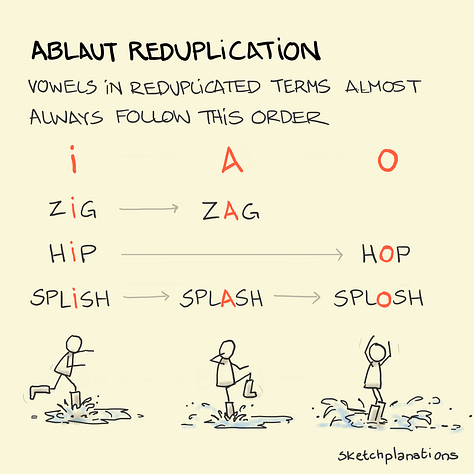
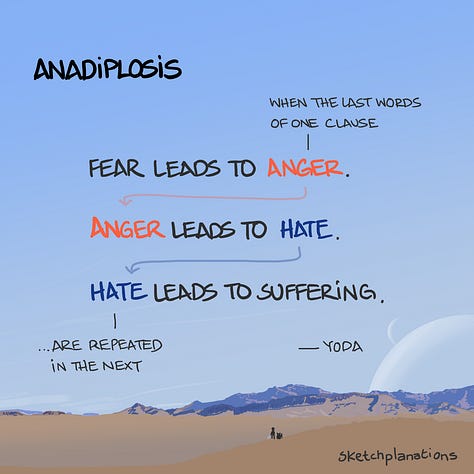
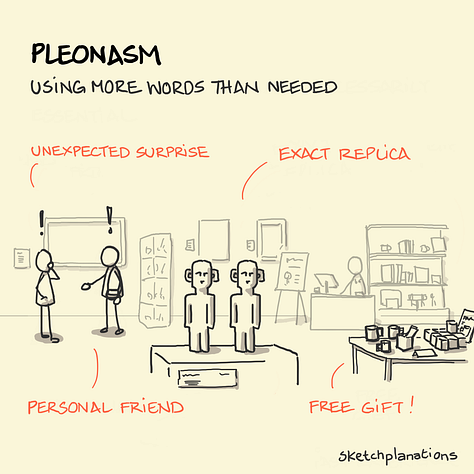

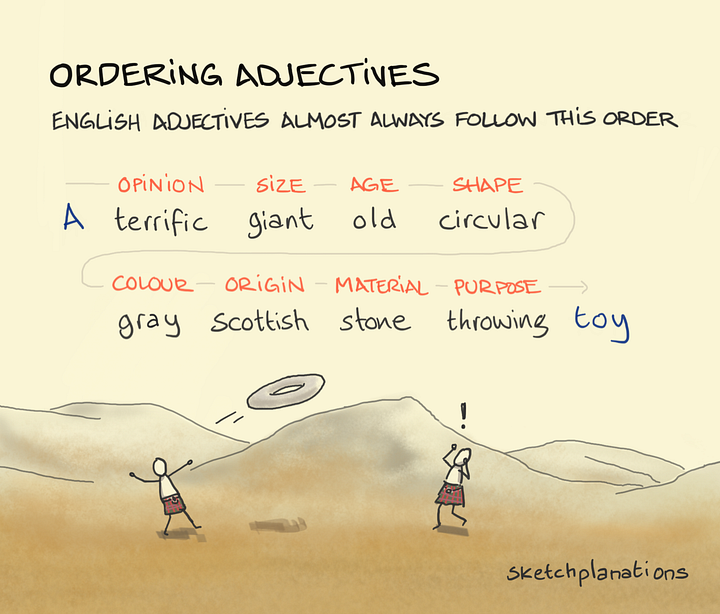
Curiously, I also made a track called Rhyme & Reason.
Enough. I hope you have a listen, and if you enjoy it, please do consider rating and subscribing to the podcast.
Thanks!
Jono



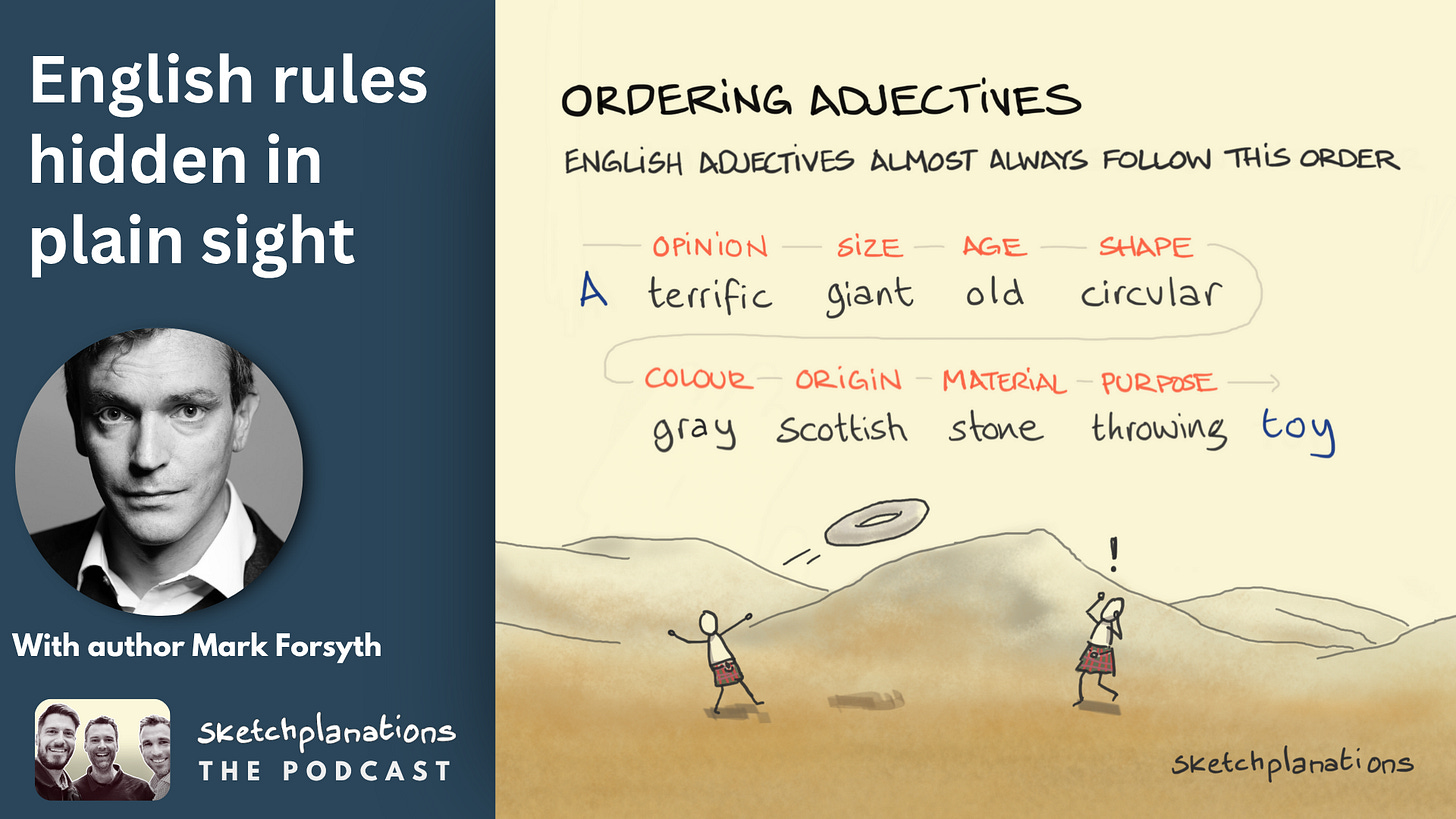
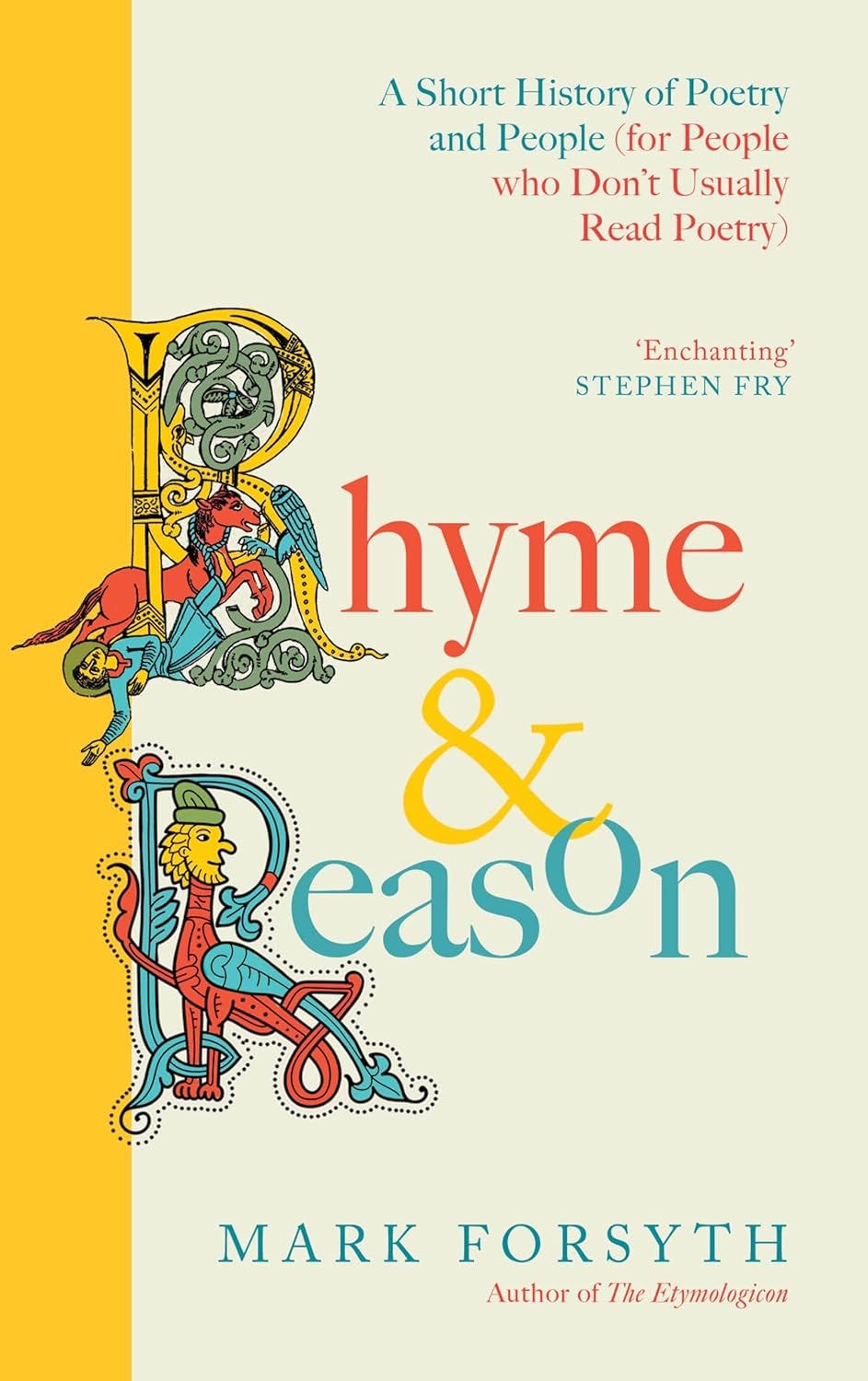
Really enjoyed the podcast
I follow an Irish sketch comedy group named Foil Arms and Hog. They did a sketch on the order of adjective just last week. https://www.youtube.com/watch?v=b58J8b_Uo4U